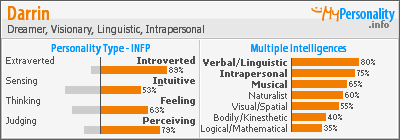Leaving my beliefs on the actual issue of health care reform aside... I'd like to dissect the strategy and PR disaster this issue has turned into for Obama...
I've been following the health care debate over the past several months. Today, out of curiousity I took a gander at the approval ratings for Obama and for Congress.
51% of the American public approve of the job President Obama is doing.
Compare that to Congress... 26.8% approve and 64% disapprove.
I believe this is largely and predominantly Congress's own doing (and I doubt I'll get much disagreement on that).
Whether you agree or disagree with Obama's plan how would you feel if you were told that because of your beliefs you're no better than the Nazis, your views were portrayed as being less valid or "astro-turf" because they were "organized" (despite tremendous evidence to the contrary), or that you're a racist because your views run counter to those that make up a majority of our senators and representatives in Congress?
Different members of the Democratic majority in Congress have said or made all those insinuations over the past few months. I believe they've largely unwoven the sense of unity that Obama established, or at least started to establish during his victory speech last November.
Obama had overwhelming popularity when he was elected, and that popularity gave him tremendous political capital. Unfortunately due to their name-calling and divisiveness many within his own party have squandered that political capital by alienating their constituencies.
Going into this health care debate and even now most Americans believed and agreed in a need for health care reform. But any criticism of the Democratic sponsored reform bills has been marginalized any attempts at bipartisanship have largely been ignored.
Now, I may be in the minority within my own party that I'm willing to give President Obama the benefit of the doubt on his desire for bi-partisanship and unity within Congress. But if I were one of his supporters I would be livid at the Democratic leaders in Congress for alienating much of America.
There are plenty of Americans who never would have supported Obama or a Democratic Congress or anything they put out there and others who would support Obama and Congress no matter what he said or did. I realize these are segments of the population that see everything in black and white (or in this case red and blue). But I'd argue the political beliefs of most Americans fall somewhere in the middle. And it was this "middle" that Obama essentially entrusted Congress with "winning over."
Instead of listening to their constituents, instead of trying to work with one another Congress has taken on a rather hostile, "our way or the highway" mentality that has resulted in their already low approval ratings falling even lower and made what once seemed like an almost certain political victory for Obama increasingly more questionable.
To some extent I believe this is rooted in a Congressional conceit. Many of our senators and representatives feel they know better what is best for America than we Americans know what is best for ourselves. And some of the recent remarks of many members of the Congressional leadership have only served to confirm that perception that many Americans (at an ever increasing pace) have of Congress. And it's that very conceit that is further dividing the country as a whole.
While I'll concede my own beliefs are further on the conservative end of the political spectrum than the liberal I believe that not only the corruption but also the conceit of Congress is systemic. It's not limited to one party or the other. As the heavily publicized Jack Abramoff lobbying scandal in 2006 proved-- both parties are equally capable of being corrupt.
This is due largely to the growth of the federal government. The more power and influence the federal government has gained the more that power has corrupted our elected officials in BOTH parties. Ideologically the Republicans are supposed to be a government of LIMITED government but in practice the Congressional Republicans have shown their hunger and thirst for power is just as strong as their colleagues across the aisle.
The legislative, NOT the executive branch is the most powerful branch of the federal government. The executive branch is just more concentrated in that power than the legislative branch-- it's a lot easier to direct your enthusiasm (be it negative or positive) at ONE person than at an elected body of 535 people. Especially when an individual American can only claim any semblance of responsibility for electing 3 of those Congresspeople (2 senators, 1 representative).
As a result we have a government where most of the power exists in a vaccuum... A vaccuum where most of those elected officials believe that their constituents serve them... not that they are supposed to be serving us. We aren't servants of the government. The government is a servant of the people. Unfortunately, you wouldn't know that from the attitude many in our government have displayed towards those who disagree with them.
Thursday, September 24, 2009
Subscribe to:
Post Comments (Atom)


1 comment:
Sometimes Congress makes me so mad I cold just spit.
Post a Comment